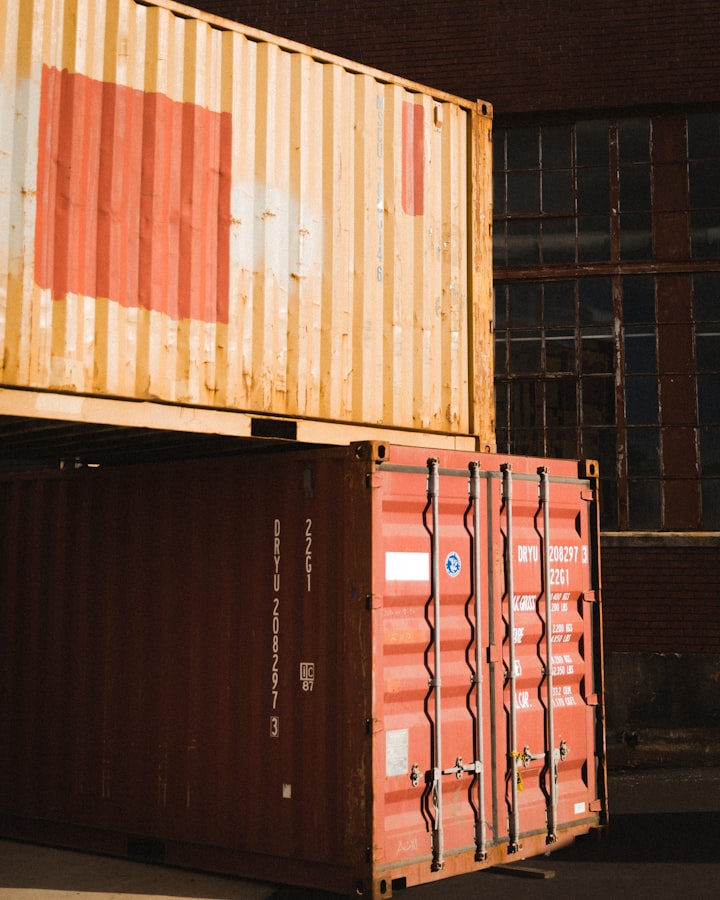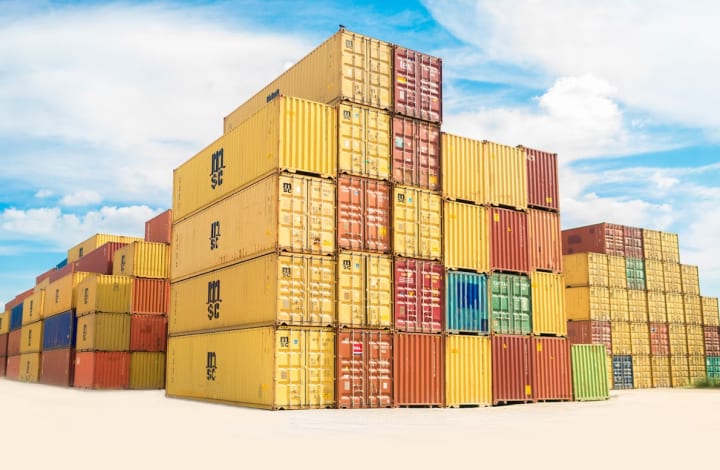
With the continued spread of the international epidemic, the global economic downturn, reduced demand, and a large number of container ships suspended, international logistics companies began to reduce wages, mandatory leave, and layoffs ......
"Many companies are indeed laying off staff or cutting salaries, but there is no opinion on giving subsidies, the pay cut will not agree, our company also wanted to cut salaries in February, but we were forced to dismiss."
"Affected by the epidemic, factories, trading companies and another large number of accounts in arrears, many freight forwarding companies in cash flow will be more or less tight, similar to such companies, laying off several non-essential jobs to ease the financial pressure is also there." Another freight forwarding company employee confessed, "Our company has also been owed money by customers."
Another industry insider said that if the epidemic continues, it is only a matter of time before international logistics companies lay off staff and cut salaries.
The situation for international logistics companies abroad is just as bleak.
Recently, rumors of the US Postal Service going bankrupt have been rife. The US Postal Service said that its business had fallen by nearly a third compared to the same period last year and that its net operating loss would exceed US$22 billion over the next 18 months, with the possibility of running out of cash by 30 September.
A few days ago, WestJet, Canada's second-largest airline, announced 6,900 job cuts, about half of its total workforce of 14,000. It is understood that 90 percent of these are voluntary departures. "Starting last week, the company began calling for employees to leave voluntarily or retire early, which is disastrous news for WestJet," said Ed Sims, CEO of WestJet.
Canadian transport and logistics giant Mullen Group had also said it would temporarily lay off some employees, suspend dividend payments and drastically cut executive pay as the outbreak hit the cargo market hard.

Lance Malesh, a chief commercial officer of BDP International, a third-party logistics company in Philadelphia, USA, confessed: "This is an unprecedented disaster and no one can formulate a perfect plan to get out of it. Companies must be mindful of their current liquidity and make plans for how they will respond if the outbreak continues into 2021."
South Korean shipping company SM Line has announced a 10% pay cut for its executives as a result of a massive outbreak of the New Crown virus in China and South Korea, which has seen a significant drop in shipping volumes.
......
Behind the pay cuts and layoffs is a reflection of the setback in international logistics across the globe under the epidemic.
How many freight forwarders can carry on for another 3 months?
The freight forwarding industry, which connects shippers and carriers, has hit the pause button because of the epidemic.
According to customs statistics, the total value of China's import and export of goods trade in the first quarter was RMB 6.57 trillion, down 6.4% from the same period last year. Among them, exports of 3.33 trillion yuan, down 11.4%; imports of 3.24 trillion yuan, down 0.7%; trade surplus of 98.33 billion yuan, down 80.6%.
Freight forwarding practitioner Xiao Zhao expressed his concern: "Now more than 90% of the goods going are epidemic prevention materials and necessities, business diversification is okay, if the company does not do these, then it may have to cool off."
In Zhou's view, there are some individual cases in the industry. He said that there are small freight forwarding companies because of the products they make or because their main customer groups have special transport needs, then in the market supply, in general, is in a tightened state, naturally, his performance is in the counter-trend upward state. In addition, the company is small and does not have a bloated and complex internal structure, the company is not under great pressure in terms of labor cost expenditure, so under the conditions of a rising business, the boss will not do the consideration of layoffs.
Some industry insiders predict that, after the epidemic, the next companies in various countries are likely to recreate the supply chain, shorten the supply chain radius, and the global freight forwarding market capacity will further shrink.
Xiao Zhao confessed: "can only see the control of the epidemic in various countries, it is estimated that the whole of 2020 will be very difficult, if the control is not good, many freight forwarding companies may also be the time of these months (facing closure)".
In the short term, the freight forwarding industry has become a setback, freight forwarders should do how to carry through the second half of the epidemic?
Xiao Zhou said, affected by the epidemic, the international economic and trade situation in the short term to meet the Waterloo, but also greatly stimulated the governments of various countries to the importance of manufacturing. Therefore, both in the short and long term, the developed countries will continue to strongly recall important manufacturing industries back to their countries, as the developing countries will also try to stimulate the development of their manufacturing industries to reduce the dependence on imports. The general trend of international trade will continue to grow in the future, but the trend and pace of growth will be reduced due to the above factors.
"In this situation, even though the freight forwarding industry is facing short-term pressure to eliminate and optimize, there is still plenty of room for growth in the future, so freight forwarding companies should work together with their staff to overcome the difficulties and actively develop new products and new business forms. At the same time, freight forwarding industry practitioners should also seize the opportunity to rise to the challenge and actively promote the industry's specific business combined with the Internet, to promote the process of freight forwarding digitalization is the future development of the course."
Suspension of shipping, low price solicitation ...... Still can't save losses
With the sharp drop in transport demand, shipping companies have seen tough times, stopping sailing and soliciting work at low prices ...... But still can't save the lost.
Shanghai International Shipping Research Center released the "international container shipping transport market quarterly report" which pointed out that in the first quarter, the global container ship capacity of 22,961,000 TEU, an increase of 3.98%. Among them, 23 new container ships were delivered, totaling 102,400 TEU, down 58.6% year-on-year. Container idle capacity picked up in March, with the proportion of idle capacity standing at 10.6%, up 6.6 percentage points from the same period in 2019. New orders for container ships in the first quarter were 153,000 TEU, down 45.6 percent year-on-year.
French shipping consultancy Alphaliner expects global container ship idle capacity to exceed 3 million TEU for the first time shortly.
Due to the significant decline in transport demand, major liner companies have begun to reduce capacity or large ships for small ships. According to the International Container Shipping Market Quarterly Report, 2M Alliance has suspended four Asia-Europe routes, and according to Alphaliner data, its weekly capacity on Far East-Europe and Far East-North America routes dropped by 9.7% and 14.6% respectively at the beginning of March. Ocean Alliance is also canceling 10 sailings on the Pacific, with weekly capacity on the Far East-Europe and Far East-North America routes down 9.6% and 11.4% year-on-year at the beginning of March respectively.
Previously, Rogow.com interviewed Xiao Zhou when he said that Southeast Asia, Japan, Korea, and Taiwan, and other near-ocean routes due to the basic time efficiency can arrive within half a month, to a certain extent, can replace air cargo transport epidemic prevention supplies and necessities, so the impact is relatively small, and even up. However, with the seriousness of the epidemic in Europe and the United States, the demand for transportation in ocean shipping routes has dropped sharply. Although some liner companies have taken measures to reduce the scale of capacity by suspending flights, the price of transportation is still on a downward trend and the capacity of shipping companies is being severely tested.
Also of relevance to shipping companies is the issue of the crew trapped under the epidemic. Several countries and regions around the world have imposed varying degrees of port and travel restrictions, resulting in large numbers of crew members being stranded on board ships or in port without being able to change shifts. Figures show that more than 80 countries have restricted or outright banned crew changes.
"Not being able to change shifts is very stressful for crew members, both mentally and physically, and it can be very problematic if you get sick on board and can't get timely medical treatment," said Xiao Zhou.
Domestic air cargo may usher in new opportunities
In terms of domestic air cargo, data released by the Civil Aviation Administration show that in March, a total of 3.9 billion tonne-kilometers of total transport turnover was completed, down 63.4% year-on-year; 484,000 tonnes of cargo and mail transport was completed, down 23.4% year-on-year. It is worth mentioning that the cargo volume of all-cargo aircraft grew against the trend, with a total of 253,000 tons completed, up 28.4% compared to the same period last year.
This is related to the structure of China's air cargo, which is mainly dominated by the belly class resources of major airlines. With the cancellation of a large number of passenger flights during the epidemic, the capacity of passenger aircraft belly-hold transportation dropped significantly.
Postal airlines, SF, Yuan Tong, CaiBird, and other postal express companies with air cargo capacity played an important role during the epidemic, but compared with foreign logistics giants such as DHL, FedEx, and UPS, there is still a gap in the fleet size, route network coverage capacity and the number of integrated international logistics service providers.
With the major airlines' "passenger to cargo" to promote the postal express enterprises to increase the number of all-cargo aircraft as well as chartered aircraft and other measures, air cargo capacity tension, and soaring prices may be alleviated.
At present, the country has introduced policies to support the domestic epidemic has turned around, the resumption of production, etc., are for air cargo with the opportunity, air cargo may be about to usher in new opportunities.
It is destined to be a tough year for the global international logistics industry. While everyone stands tall and bemoans the industry's downturn, layoffs, pay cuts, and unpaid leave ...... When it comes down to individuals, it is a catastrophe of the heavens. No matter what, grit your teeth and believe that spring will come!






Comments (1)
Fantastic! Thank you